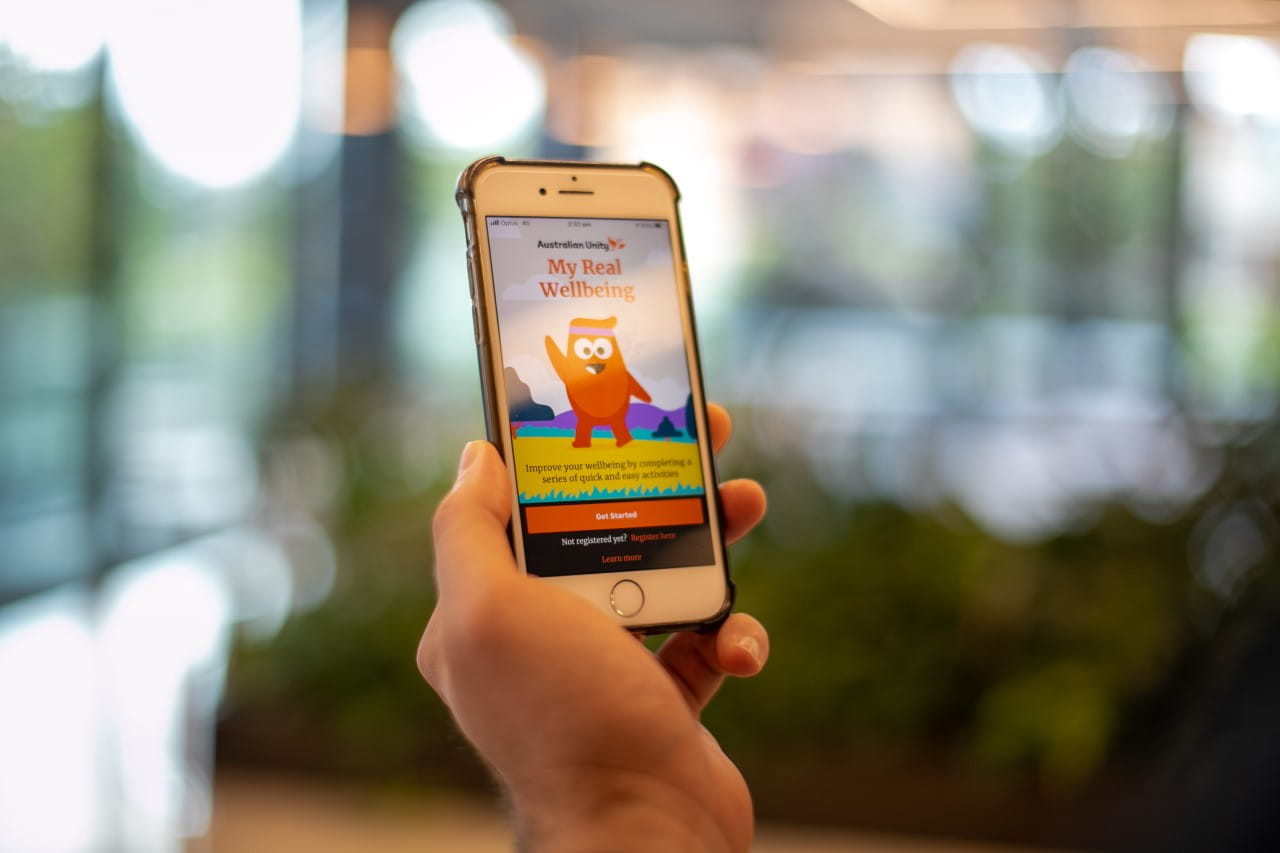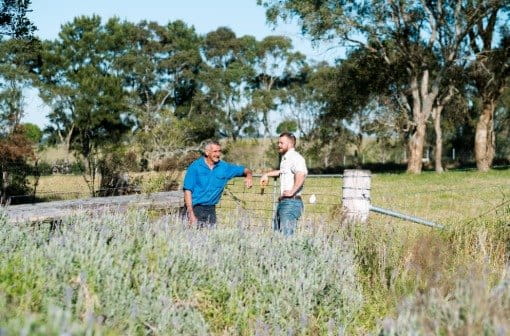“The questions really encouraged me to consider what I really want in life and what next for my family. What are my goals, plans and dreams?”—Tyler, Australian Unity member.
Key points
- The Australian Unity Advanced Wellbeing Assessment allows you to measure your wellbeing against people similar to you.
- Created in conjunction with Deakin University, the Assessment gives you a detailed analysis of your overall wellbeing.
- The Assessment then provides a report that offers advice, support and motivation to help you make improvements to your wellbeing.
Australian Unity has been measuring the wellbeing of Australians with Deakin University for more than 20 years.
You can now use this extensive wellbeing data to benchmark your personal wellbeing against other people of similar age, gender and relationship status as you.
Building on our existing wellbeing tool, the Advanced Wellbeing Assessment allows you to measure and improve your own wellbeing in the areas of health, safety, relationships, community connectedness, standard of living, achieving in life and future security.
We’ve worked with Deakin to create this comprehensive new tool that will give you detailed analysis and a precise breakdown of your wellbeing.
This new Advanced Assessment will ask you a range of questions for a more in-depth measure of your wellbeing.
A detailed report will then provide advice, support and motivation, backed by research from Deakin and expertise from Australian Unity, to help Members make improvements to their wellbeing over time.
This new assessment tool also offers general advice if someone’s personal wellbeing score is outside the normal range, and further advice about which areas of wellbeing may be an issue for individuals.
To take the Advanced Assessment, click here.

Tyler’s journey to better wellbeing
Tyler, an Australian Unity Member, recently completed the advanced assessment and reported some surprising results.
“The questions were easy to complete, and they made me stop and think about how I personally rate my life,” he says.
“It was based on things such as finances, health, relationships, and my community, and while there were some surprises, like my pessimism about what it really means to 'achieve in life', the test also reminded me of just how much I have already done and achieved.”
Tyler said he noticed the assessment was particularly insightful when it came to his personal health, which measured not just his physical health but also his mental health.
Because of his relatively low rating in this area, Tyler says he can now focus on what he needs to do to make improvements.
“The fact I scored lowest on health was interesting,” he says.
“I don't have any ongoing illnesses or injuries, and while I have had some health scares in the past, most medical professionals would say I'm strong and healthy.
“I think this low rating probably points to my high standards and expectations of myself, as well as the fact I don't bounce back from exercise like I used to.
“With my mental health, while I was in the average range, it probably points to a skeptical mindset more than anything else. It’s a really good reminder that I should wear my rose-tinted glasses more often, and remember the good things in people and the world around me.”
When it comes to areas like standard of living and purpose in life, Tyler says the assessment showed where he had neglected certain parts of his life while he was concentrating on other things.
In particular, Tyler noted that maintaining his social circle and staying focused on where he wants to be in the future were areas that needed some attention.
“The standard of living questions made me appreciate how far I've come from when I was in my 20s living pay cheque to pay cheque,” he says.
“So while I have improved my life in many areas, the assessment reminded me there are some that I may have neglected while I was focused on building my career and becoming financially stable. It was a good reminder that I need to keep working on all areas of my life and widen my social circles.
“The questions really encouraged me to consider what I really want in life and what next for my family. What are my goals, plans and dreams?
“It was a bit of an eye-opener, and reminded me that when I'm older the really valuable things will be the people in my life, my memories with them and the opportunities they have, not necessarily the things I own or the places I've seen.”
How the assessment works
Associate Professor Matthew Fuller-Tyszkiewicz, from the Centre for Social and Early Emotional Development at Deakin University says the wellbeing assessment is designed to be comprehensive, providing an overall assessment and breakdown by key categories of wellbeing, such as satisfaction with life, health, and relationships.
“A key feature of the assessment is that it has a brief form, providing a quick snapshot of wellbeing, and then a deeper dive into domains of wellbeing,” he says.
“The deeper dive has the potential to enhance respondents’ awareness of the things that contribute to their wellbeing, and also to help them to assess their current levels across these domains.”
Associate Professor Fuller-Tyszkiewicz says the task-based, goal-setting aspect of the Advanced Assessment means Members have a comprehensive range of options at their disposal to help improve their wellbeing.
“An exciting part of this assessment tool is that we have matched a range of activities to each domain to help people enhance their overall wellbeing,” he says.
“My colleagues and I drew upon evidence-based activities, such as tasks designed to help people more effectively set goals to work towards in their daily life.
“A key component of this task is breaking down bigger goals into meaningful and smaller tasks, as well as providing support when individuals are struggling to reach these smaller, intermediate goals.”
Australian Unity Member Tyler agrees, noting the ability to compare results with other members in the same demographic was a big help in assessing his own situation.
“Overall the assessment highlighted the areas of life that I'm not happy with or need some work,” Tyler says.
“But it also showed that I'm not alone in this area. Being able to compare my results against others who have also completed the assessment allowed me to realise that overall, while I have some things to work on, really I'm in a pretty good space.
“It's always beneficial to take a moment to reflect and have a serious look at how we rate our lives in all areas, not just financially. You will never know what penny drop insights you may have if you don't look inside yourself on occasion."
Disclaimer: Information provided in this article is of a general nature. Australian Unity accepts no responsibility for the accuracy of any of the opinions, advice, representations or information contained in this publication. Readers should rely on their own advice and enquiries in making decisions affecting their own health, wellbeing or interest. Interviewee names and titles were accurate at the time of writing.

.jpg)
